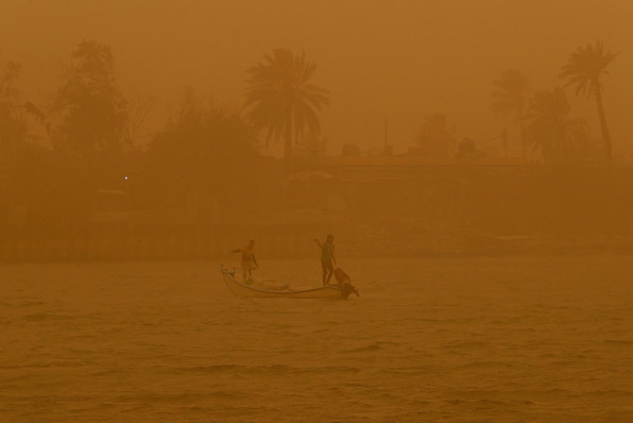Temperatures in the Middle East nations have increased significantly in the past three decades. The Middle East region is one of the most vulnerable regions in the world to the impact of climate change.
Experts have claimed that droughts will come in the region
with greater frequency and severity because precipitation has decreased. The
Middle East nations are already witnessing the impact of climate change. In
recent weeks, temperatures in some parts of the Middle East region have topped
50 degrees Celsius.
Recently, a study has forecast that temperatures in theMiddle East region are set to rise by almost half a degree Celsius per decade.
Effects of
climate change
Since the beginning of April 2022, Iraq and other countries
in the Middle East have been hit by a series of severe dust storms. In Iraq,
intensified storms have repeatedly smothered cities this year. Dust storms have
become common in Iraq. The storms sent thousands of people to the hospital. In
May, over 5,000 people were admitted to hospitals with breathing problems in
Iraq.
Rising soil salinity in Egypt’s Nile Delta is affecting
farmland. Rising soil salinity has been a major problem in Egypt in recent
years. Drought has also affected Afghanistan. People are struggling to get
enough food to eat because of the worst drought in decades.
Over 12 million people in Iraq and Syria are losing access
to water due to rising temperatures and low rainfall. Desertification is
sweeping in Iraq, Syria, Jordan, and Iran.
As the Middle East region grows hotter and drier, the United
Nations has warned that the Middle East's crop production could drop 30 per
cent by 2025. According to the World Bank, the region could also lose 6 per
cent to 14 per cent of its GDP (Gross domestic product) by 2050 because of water
scarcity.

Comments
Post a Comment